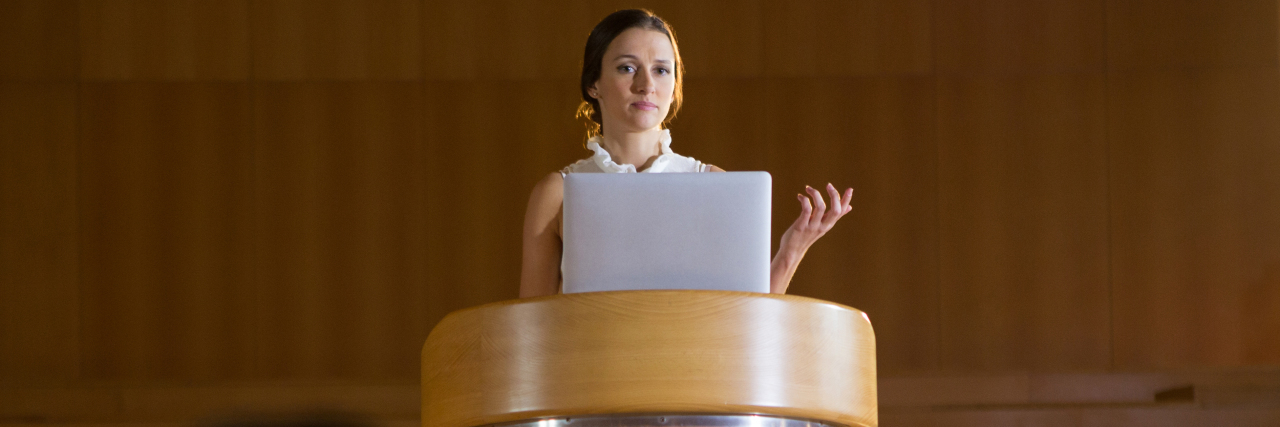I was diagnosed with type 1 bipolar disorder just over 20 years ago. For a long time, I avoided family, friends and anyone who knew me before I was before I was sick, anyone who would question why my life had gone so off the rails. As I learned about my illness, how to manage it and how to live a (relatively) normal life with it, I started to tell people about my diagnosis. Not everyone, of course. When a person has diabetes or heart disease, they don’t lead with that information when meeting someone new. Likewise, I disclose my diagnosis selectively. However, I am a volunteer speaker with Canadian Mental Health Association and my entire purpose with the organization is to speak about my experience living with a mental illness. So I regularly tell perfect strangers the details of what it is like to live with bipolar disorder.
Regardless of who I am talking to, an acquaintance, a friend from high school, a student in a class that I have been invited to speak to, the reaction to the words “bipolar disorder” is universal —discomfort. People look away, shift in their seats, “hum” and “hah” as they search for the appropriate response. But I’m prepared for that now, so I rescue them from their discomfort. I pull out my very well rehearsed, “In some ways it really has been a blessing.” I effortlessly list all the things I’ve gained from my experiences: empathy, patience, perseverance and a better sense of humor. It takes the pressure off of the receiver of the information and the tension out of the air. Everyone is comfortable again.
Here’s the thing — I’m tired of making people feel comfortable. I’m tired of downplaying the years and years of struggle I went through, the devastating losses I have had, the unpleasant and permanent side effects from the medications I take every day in order to be “normal.” Mental illness sucks. Bipolar disorder ripped apart my life…every aspect of it. I have fought tooth and nail to get to where I am today. And when I couldn’t keep myself alive, my family did. It was, well, an uncomfortable experience.
And here’s the hard truth. The reason the person or people I am talking to feel uncomfortable when they hear “bipolar disorder” is because of stigma. In that moment, I go from being a living, breathing person, to being a diagnosis and all the baggage it carries. Am I like the murderer they saw last night in the crime drama on TV? Do I turn into a zombie when I take my meds? Do I turn into a “psycho” if I miss a dose? Should they change the language they are using with me because my intelligence is likely far lower than theirs? But then I step in and, with a smile, reassure them that what I have experienced wasn’t that bad. I’ve learned and I’ve grown. I’m a better person.
The last part, isn’t a lie. I am a better person for my experiences. But I’m sure that I could have still turned out to be a pretty good person without facing an incurable, lifelong, severe mental illness. So, I’m going to stop softening the blow. I’m not going to minimize my suffering for someone else’s temporary discomfort. In fact, I’m going to start challenging that discomfort. I want people to start to think about why simply hearing a mental illness diagnosis so radically shifts their opinion of a person. I want people to challenge the stereotypes that have defined my and many other diagnoses for too long. For a change, I will be comfortable with others’ discomfort, and offer them that moment to make themselves into better people*.
(*no mental illness required)
Photo credit: Wavebreakmedia/Getty Images

